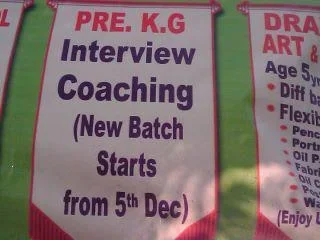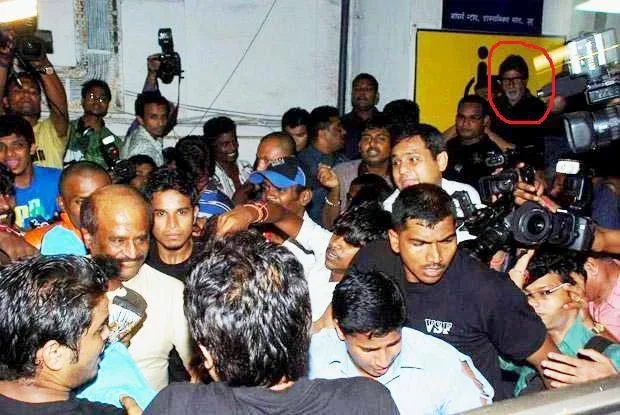Sanatana dharma has been challenged from buddha's time, perhaps earlier too. Our dharma welcomes opposition and dissent and respects their karma to do so. Even with mass murder of brahmins and hindus by muslim invaders and christians, hinduism has withstood the onslaught and will survive for ever till pralayam, or in modern parlance, till the end of the world.
i do not know if this is a smug attitude based on confidence or ignorance. a confidence based on knowledge that i dont know. if so, i would be grateful if it is shared. or, if it is based on history? if it is the latter, i think, times have changed so much, that we cannot afford to blindly look back and predict the future based on the past.
In no other time in the history of mankind has the world faced so much turmoil, kindled by facilities of rapid movement of ideas and peoples. Over 50 years the face of Europe and north America has changed, from pristine white societies to the hues of rainbow, bringing in ideas and need for accommodations.
So too, india has changed since independence. The old values of caste practised till independence, already on rocky foundations have withered away. So it comes now as to who is the upholder of Hinduism. It is no longer, and highly unlikely will be the State. The State through kings, who revived Hinduism from buddhims and Jainism, but were unable to withstand the onslaught of islam and later European mercantile Christianity and liberalism later.
Akhand bharat has been shrinking, and signs portent to faster shrinking. May not be geographically, but in terms of hindu practises. A secularization of our lives is happening, whether we like it or not. Even diwali is more an occasion for merry making and jollity, than any seriuous contemplation of the victory of good over evil.
So, I think one cannot hark back to good ole days or the fact that Hinduism withstood previous attacks against its existence, good enough prediction for the future.
Here is why:
- even 100 years ago, our tambram society was stable and centred around agraharams. Today the world is the limit, which even perhaps 25 years ago, most of us would not have envisaged. While the distances of increased, so too have been the ideas. We have conveniently and comfortably dropped off rituals which we have found cumbersome, irrelevant or plainly inconvenient.
- Ic and ir marriages, unheard of almost in my youth, in tambram society, today if not the norm, atleast does not raise eyebrows or opposition to the extent it did in those days. There is no fear of banishment from the community, as young people are self sustaining and do not need the community or family network for survival, jobs or favours.
- The easy availability of alternate lifestyles and values, more in tune, with the individual’s temperament and comfort. this perhaps is the biggest threat to the ancien regime of manu and his smriti. Each one of us has diluted the practises to our own comfort level. Whereas on one hand, we tend to despise those whose values are more loose than ours (we call these Brahmin haters or self hating Brahmins), we are equally angry at those who are more traditional than us (no one’s daughter wants to marry a priest or with inlaws who practise madi and suddham concepts)
- The low birth rate among tambrams, which appear to be irreversible atleast at the present, means that we have increasingly less presence in our tamil heartland. Along with the less numbers, come also decreasing ability to pull in social structures and support for what we consider a Brahmin lead Hinduism. Yes, the iyer will be called to officiate a function, but the iyer is powerless to set the tone or value of the community. He is a puppet for rituals, but not societal values based on a Brahmin atthetop hierarchy.
- The above is also an incidental result of the bloc voting strength realized by caste groups. Right now, the dalits are not directly anti Brahmin, but the middle castes, more numerous than us are, and we have very little leverage by way of offering to the community. So we end up sulking over ‘reservations’ which is a legacy of the previous generation in their inability to see what was coming, and how position the community such that our interests were protected. A good example of how this was done on a community scale is the Christians, though equal in number, appear to have friends in all political camps. This, I think, is the ultimate failure of Brahmin leadership – secular and religious. Both.
There will be more temples build. What is happening in Toronto may be an example. Hindu temples are mushrooming thanks to sri lankan patronage. But these are temples where the Brahmin is only the priest, and as long as he is pleasant and in no way antagonizes the large numbers of bhaktas, who are non Brahmin he is allowed to live. Without that patronage, he will in the streets.
The challenge to the traditionalists here, is not to berate the Brahmin haters. I am with nara, that no one in the forum hates tambrams. Many of us, look forwards, look at ourselves now, and what we were. And perhaps try to reinvent ourselves, to a more positive sounding community, something that goes hand in hand, with our increasing material prosperity.
For we find, that money alone does not bring happiness. There appears to be a need to nourish the soul too, something most of us, including yours truly needs. What it is, and how we can approach it, and in doing so, provide a viable and attractive alternative to fellow hindus of other castes – this is the challenge. A challenge, which neither the religious or the secular leaders of the community appear unable to rise upto the level demanded by the situation.
For without such a new imaging, we will continue to go in the mode that we are currently, ie further watering down our rituals and practises, absolutely no depth of conviction for no one in his right mind, can ever support manu – for people will throw back in your face manu’s views on women and shudras. In a world populated mostly by women and shudras, I think, a starting point for resurgence may be, to bid adieu to manu and old style values as practised by kanchi mutt.
We need a reformation.
Here is a challenge to the traditionalists of all hues. Instead of berating the Brahmin haters, why don’t you come up with solid ideas for popularizing the practises. Instead of lamenting that no one practises rituals any more, come up with ideas and more contemprory rituals to replace the ones that appear not to be popular. Instead of negativity based on fear of defeat, come back with ideas. For nothing is better a combating tool, than new ideas.
Maybe that is what is missing in all these debates – new ideas for a modern updating of our traditions, to be in tune with the times of today – a today which has never been seen in history before, and which appears to be changing even as it is happening.
Thank you.


